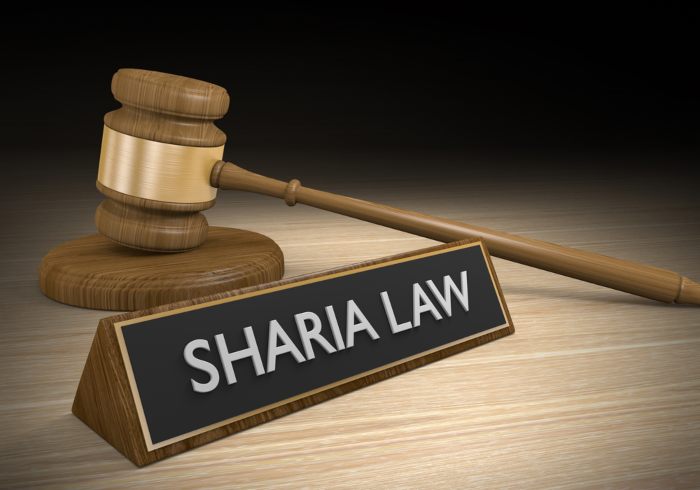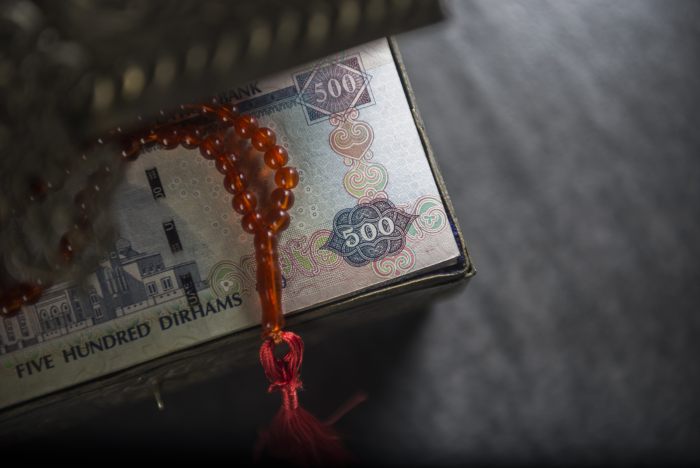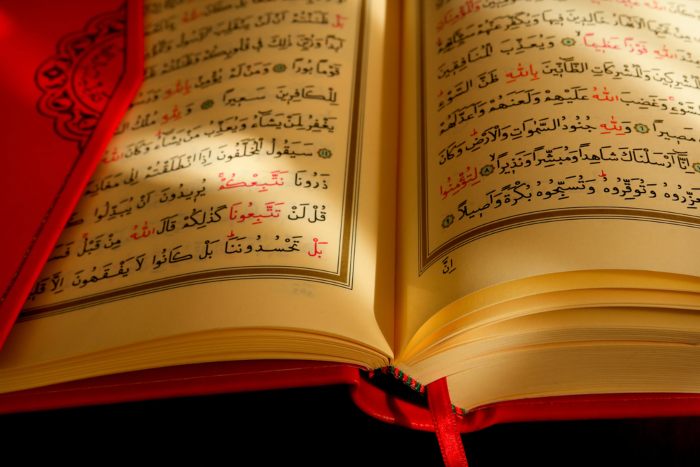
Many of us must have heard of the term mortgage or even been a party to this transaction especially if he has purchased a house or property and does not have enough to pay for the property in full. For Muslims around the world, the subject of mortgages has been a frequently debated and possibly contentious topic. As some analyzed it and referred to it by the term Islamic mortgage, and some warned against dealing with this type of financial transaction.
In this research, we will learn more about Islamic mortgage and mortgage and discover whether this type of financial transaction is halal or haram.
What is an Islamic mortgage?
Firstly, a mortgage in general is an agreement between you and a lender to lend you a sum of money to finalize your financial transaction to buy a home or to borrow money against the value of a home you already own. You will have to repay this money in installments in addition to the interest charged by the lender. In this case, the lender has the right to take possession of your property if you fail to make the payments and the money you borrowed plus interest.
Mortgage term
A mortgage is a loan that enables the borrower, whether an individual or an institution, to borrow money to buy a house or any other property, and his ownership of this property is a guarantee of the loan, meaning that in the event of his inability to repay the loan, the lender has the right to take measures to ensure his ownership of this property, and in another way The property remains mortgaged until the loan is repaid, so the lender is called the mortgagee, and the lender is called the mortgagee.
Key differences
There is a big difference between the mortgage offered by banks that charge interest and the Islamic mortgage. Dealing with usurious interests offered by ordinary banks has been prohibited following the laws of Islamic Sharia. While Islamic mortgages differed in the fatwas ruling on it from a legal point of view, as some have permitted dealing in it according to contemporary fatwas.
Usurious interest
The big difference between the usurious mortgage and the Islamic mortgage is the usurious interest imposed by the banks on the person who is late in paying the payments due to him to the bank, as the delay in paying these payments results in financial penalties imposed by the bank (the lender) on the person (the borrower) and these fines are usury. . This usury is contrary to the teachings of Islamic law.

Islamic Mortgage Transactions
Islamic mortgages are based on two basic transactions (Lease and Acquisition) and (Murabaha), and even contemporary scholars and fatwas differed in the permissibility or prohibition of these transactions.
1- Lease and Acquisition
The lease contract will end with the lessee owning what he had rented. That is, the bank buys the property and retains its ownership, and at the same time, the buyer makes the payments. When all the due payments are completed, the buyer gets full ownership of the property.
2- Murabaha
The bank or lender purchases the property and then sells it to the buyer at a fixed profit. The property is registered from the beginning in the name of (the buyer), and the buyer pays the amount in installments to the bank (the lender). In this type of Islamic mortgage, all costs are determined upon signing the contract with the consent of both parties, and this prevents any penalties or fees from being imposed by the lender on the buyer. But the banks in this case usually ask for guarantees or a large down payment to protect themselves from default by the buyer.
Murabaha Conditions
Concerning Murabaha in Islamic mortgages, it is considered a forbidden and illegal transaction if the following two conditions are not applied:
- First: is that the bank owns this property before it sells it, as the bank must buy this property from its owner for himself.
- Second: That he possesses it by laying hands and that he has the freedom to dispose of it.
If the transaction is devoid of these two conditions or one of them, then it is a prohibited transaction.
Mortgage nowadays
It is necessary to point out here an important and factual matter at present. Muslims find themselves obliged to buy and own a property or a house to ensure the stability of the family. Some of them explicitly go to the usurious banks and buy a house through mortgage and deal in the interest imposed by these banks.
And some of them turn to Islamic banks to buy a house through Islamic mortgages that are based on the principles of (Lease and Acquisition) and (Murabaha) because they believe that these two transactions are permissible.
Mortgage opponents
While the third group of Muslims does not analyze these financial transactions regardless of their method, and at the same time does not have enough money to buy the property, so they are patient until God enriches them and until they find a legitimate, legal way to buy the property.
Of course, we do not condemn those who do not see the validity of these transactions that are based on Islamic real estate financing, but we are like other scholars who deny doing this and he believes that it is forbidden.

Halal Mortgage Terms
The Halal Mortgage in Islam is a document that guarantees the preservation of the debt in the present. God Almighty said in the Holy Qur’an:
{And if you are on a journey and do not find a scribe, then a pledge has been taken} [Al-Baqarah: 283]
According to Islamic law and according to this noble verse, an Islamic mortgage is money that is placed with the holder of the debt, and the borrower is obligated to pay this debt. If the borrower is late in paying this debt, the debt owner sells this mortgage and collects his right from it either by mutual consent or through the courts.
Conditions that must be met
That is, there is a set of conditions that must be met in a halal mortgage by the provisions of jurisprudence laws and Islamic law.
- Acceptance of the contract form by the two parties (the lender) and (the borrower) and expressly demonstrate the approval.
- That the commodity is the subject of the bet, which is often (real estate), wholly owned by the debtor.
- The amount of the Islamic mortgage must be clear, specific, and known at the beginning of the contract, and not deferred in any way.
- It is required that the contracting parties (the parties to the contract), be sane and adults.
- That the delay in payment by the (borrower) does not result in fines or interest, because this falls under the category of forbidden usury.
- The ownership of the property (the subject of the mortgage) shall be transferred to the borrower after completing the payment of the due payments and after the termination of the mortgage contract.
Is Shari’s mortgage halal?
According to what was mentioned in contemporary fatwas on Islamic mortgages, mortgages are generally permissible according to what is stated in the Qur’an and Sunnah, and it is not an obligation or an obligation. That is, the (the borrower) is not supposed to have the amount of the mortgage from the creditor (the lender) against the property.
A mortgage in Islam is a document that guarantees the right of the creditor and is a reminder to the borrower that he must pay the debt and return the right to its owners. Any violation or delay in this clause, the creditor has the right to dispose of the debt, such as returning the property to its ownership or terminating the contract subject to the debt by mutual consent or through the courts.
Mortgage in Islam
Among the provisions of the Shari’ mortgage in Islam is to facilitate commercial and financial transactions for people, especially regarding issues of housing and family stability. Therefore, it requires the completion of these transactions easily and quickly.
Islamic real estate financing that is based on the principle of Shari’s mortgage is permissible in Islam and there is nothing wrong with it. But the sane Muslim should find out the terms and validity of the mortgage contract, and the lender must take into account the circumstances that prompted the Muslim to mortgage his property in return for the amount of the debt.
Contemporary fatwas
The reason behind the belief of many Muslim scholars, even in contemporary fatwas, that the mortgage is permissible in Islam, is that it is a contract based on partnership and is not seen as a loan based on interest and forbidden usury. Therefore, and because it has become easy to obtain an Islamic real estate loan, it is necessary not to think about obtaining the loan or the ordinary real estate financing offered by usurious banks that are based on the principle of interest in their financial transactions.

Pros of Islamic Finance
- Avoid paying interest.
- A legitimate and halal way to buy real estate.
- Long-term contract, comfortable and secure for the borrower.
- Possibility to sell the property at any time provided the full loan amount is paid.
Through Islamic banks, you can buy a home without getting an interest-based loan. Through the (rental and acquisition) method, you can buy the property through the principle of partnership with the Islamic bank and pay the rent every month to the bank (without owning the property yet). Over time you increase your ownership interest in the property until you become the owner of the property at the end of the partnership period and the full rental payments are made.
Sharing principle
The Islamic Home Mortgage by Share is a business partnership between you and the Bank. Suppose you buy a house for 100,000 riyals and you buy 20% of the house for 20,000 riyals. The bank currently owns 80% of the house and will charge you rent for 80% use. Over time, you can buy back more of the house by making the rental payments which will reduce the rent payments until you finally own the entire house.
Conclusion about Islamic Mortgage
You should not get a conventional mortgage just because you want to settle in a house and therefore accept to do so than the regular banks that will charge you usurious interest along the way.
If you really want to buy a house and at the same time stay away from usury and the interest charged by ordinary banks, then you should apply for Islamic real estate financing that guarantees you not to violate the teachings of Islamic Sharia.
The types of Islamic homIslamic Mortgagee finance provided by Islamic banks have become one of the most logical financial decisions made by Muslims around the world when it comes to the topic of the mortgage. It is considered a safe and long-term investment, as you have already invested in your home and made a return on it if you rent it out during the Islamic mortgage period.




